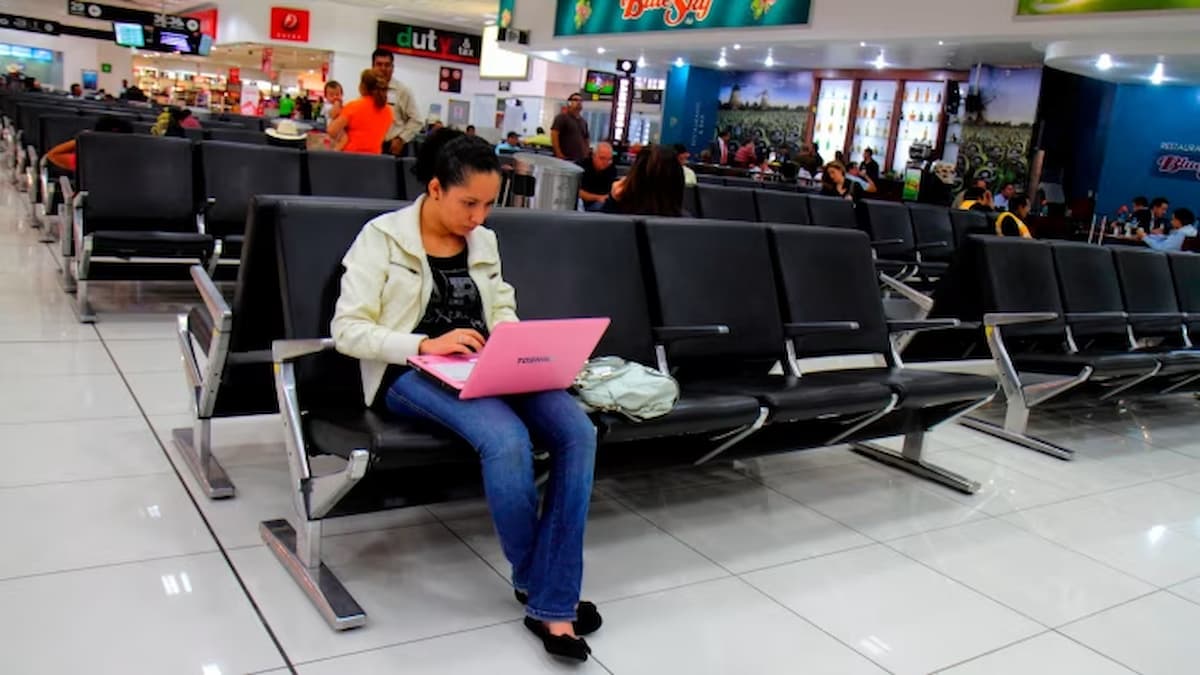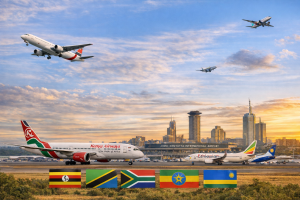Industry body says inflation-adjusted corporate travel spending will not return to pre-pandemic levels until 2027
Executives are flying less and cutting one-day work trips by plane as corporate travel settles into a permanent “new normal”, according to the chief executive of the global industry trade body.
“Inflationary pressures and other things means [travel companies] are making more money on fewer trips . . . but the way companies travel is different,” said Suzanne Neufang, head of the Global Business Travel Association. “So that is a new normal and that is probably here to stay.”
One of the big changes has been the decline of one-day flight trips, as bosses cut journeys because of frustration with disruption, environmental worries and changing attitudes to work since the pandemic.
The one-day flight trip for work “went out the door at the beginning of Covid and hasn’t really come back”, explained Neufang.
Inflation also means that executives are struggling to save money despite making fewer trips.
The GBTA does not expect spending on inflation-adjusted global corporate travel, which includes spending on flights, trains, hotels and other expenses, to return to pre-pandemic levels until 2027.
Without the inflation adjustment, the GBTA said global corporate travel would reach a record $1.48tn by the end of the year, up from $1.34tn in 2023 and surpassing pre-pandemic levels for the first time.
Delays and cancelled flights are partly responsible for fewer trips since the pandemic, with 50 per cent of respondents to a 2023 GBTA survey saying concerns about disruptions or an unpleasant experience have “somewhat” or “greatly” reduced their willingness to travel for work.
Environmental and sustainable factors have also played a part as corporates try to limit flying, packing more meetings into fewer trips or only taking a plane for long journeys.
Companies including professional service firms PwC, EY and Marsh McLennan have all outlined plans to cut emissions by reducing air travel.
In addition, there was a human element, Neufang added. “Day trips are really hard, no matter what, even on the best days they are hard, very early starts and late returns.”
The chief executive of one of the big international airlines said it was noticeable how day trips had fallen out of favour as bosses cut time in the air. The CEO pinpointed fear of disruption as a likely reason for the drop.
Neufang thought the industry was in “a little bit of a squishy moment” given the uncertain outlook for the economy, including recent stock market turmoil and signs of cracks in the US economy.
“Whether it is a hard landing or a soft landing, that is certainly something that CFOs [chief financial officers] are watching.”
However, Andrew Crawley, president of American Express Global Business Travel, was upbeat.
“Air fares and hotel rates have gone up very significantly in the past few years . . . customers’ budgets lag those price rises a little bit, but they do catch up with them eventually.”
Global multinationals were telling AmexGBT that they still planned to increase spending on travel, although small- and medium-sized businesses were more likely to suffer from economic uncertainty, Crawley said.
He also disagreed that travel problems would put people off taking trips. “You either have to travel or you don’t.”
Source: Financial times





